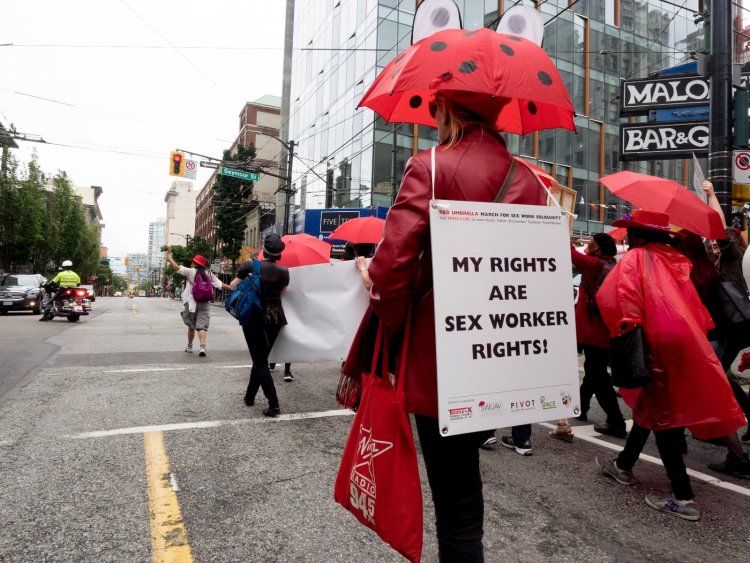Advancing Human Dignity: A Year of Progress for Sex Workers' Rights in India

12-10-2023
Alexandra Posta
East and South Asia
Global Human Rights Defence
In the wake of the Indian Supreme Court's groundbreaking 2022 ruling, which unequivocally recognized sex workers' rights under Article 21 of the Constitution, a transformative journey toward equality and justice began. This judicial milestone underscored the entitlement of sex workers to equal protection under the law, marking a critical juncture in the fight for human rights within this marginalized community.
The Supreme Court's directive, asserting that sex workers should not face arrest, penalties, harassment, or victimization during brothel raids, unveiled a new era of legal protection. A crucial component of this ruling emphasized the need to secure basic human decency for the children of sex workers, who often bear the brunt of societal stigma. This has far-reaching implications, ensuring access to essential services such as healthcare and education for these children. To commemorate this historic judgment, the All-India Network of Sex Workers (AINSW) organized a three-day National Consultation titled 'Sisterhood and Solidarity with Sex Workers: One Year Since the Historic Supreme Court Ruling of 2022.'
David Bridger, UNAIDS Country Director to India, emphasized the historic nature of the Supreme Court ruling, aligning India with a select group of nations championing legal protection for sex workers. Recognizing the equal worth and dignity of every individual not only aligns with ethical principles but also stands as a crucial measure for combatting HIV/AIDS. Senior Advocate Anand Grover highlighted the positive impact of sex workers' advocacy, contributing to a decline in HIV prevalence through negotiated condom use. Community participation in law and policy development emerged as a critical theme, echoing the Court's call for sex workers to be actively involved in decisions affecting their lives.
Shyamala Natraj, Executive Director of the South India AIDS Action Programme (SIAAP), shed light on the strategic advocacy that led to the 2022 ruling. The acknowledgment of sex workers' rights as informal workers, particularly during the COVID-19 pandemic, was a turning point. SIAAP shared poignant stories, like that of Usha Ram, illustrating the dire consequences of excluding sex workers from social safety net responses. Ms. Natraj urged the community to assert their human rights and access essential services under the law.
The 2022 Indian Supreme Court decision, firmly anchoring sex workers within the protective ambit of Article 21 of the Constitution, bears profound implications for human rights and social justice. The ruling, explicitly stating that sex workers are entitled to equal protection under the law, is a monumental stride in dismantling systemic discrimination. It tactically addresses specific provisions of human rights, particularly emphasizing the right to life and the right to equal protection under the law, as outlined in Article 21. The directive further challenges gender-based discrimination, acknowledging sex work as a legitimate profession and aligning with principles enshrined in the Universal Declaration of Human Rights and the International Covenant on Civil and Political Rights. By explicitly stating that the possession of condoms does not constitute evidence of an offense, the decision not only safeguards the right to health but also underscores the interconnectedness of rights within the broader human rights framework. In essence, this decision is not just about legalizing sex work but represents a significant leap towards recognizing the inherent dignity and rights of every individual, regardless of their occupation or social standing.
Despite the Supreme Court's resounding affirmation that "sex work is a profession" with commensurate human rights, challenges persist. Inequalities, stigma, and discrimination endure, with reports of ongoing police harassment and charges against sex workers. The need to translate the Supreme Court judgment into grassroots-level implementation is crucial. As advocates for the universal upholding of sex workers' human rights, UNAIDS and its partners remain steadfast in their commitment to working with communities, policymakers, and law enforcement. Only through collective efforts can we fully realize the vision of a society where the rights of every individual, including sex workers, are not just acknowledged but actively protected and promoted.
SOURCES
AINSW. (2023). 'Sisterhood and Solidarity with Sex Workers: One Year Since the Historic Supreme Court Ruling of 2022. Available at https://www.ainsw.in/.
UNAIDS. (5 October 2023). Indian partners reflect on a year after sex workers’ human rights affirmed. Available at https://www.unaids.org/en/resources/presscentre/featurestories/2023/october/20231005_india-sex-workers-human-rights.




 GHRTV
GHRTV 




























